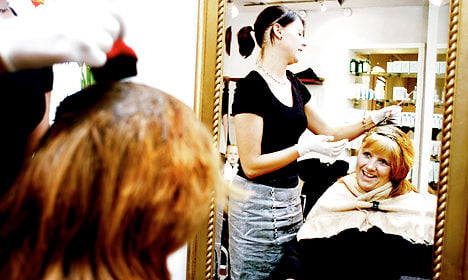FASHION
OK to charge women more for haircut: court
Danish hair stylists and barbers can continue to charge different prices for men and women after Eastern High Court rules that gender-based pricing is not discriminatory.
Published: 10 November 2014 14:05 CET

Photo: Jacob Schou Nielsen
It’s perfectly legal to charge one price for a haircut for men and another for women, the Eastern High Court ruled on Monday.
Ruling on a case that has worked its way through the legal system for nearly two years, the High Court sided with the hairdressing chain Stender, which was the subject of a 2012 complaint to the Anti-Discrimination Board (Ligebehandlingsnævnet).
A short-haired woman felt she was being discriminated against by being asked to pay more for her haircut than a man. Ligebehandlingsnævnet sided with the woman in December 2012, awarding her 2,500 kroner. Stender in turn sued Ligebehandlingsnævnet in April 2013 with the backing of the association of independent hair stylists, DOFK.
The case then worked its way up to the Eastern High Court, which on Monday sided with the hair stylists.
“I am super relieved that the High Court has listened to what we said: That cutting a woman’s hair and cutting a man’s hair amounts to two completely different services,” DOFK chairwoman Connie Mikkelsen told Berlingske Nyhedsbureau.
With the ruling, hair salons and barber shops are allowed to set whatever prices they would like for men and women’s haircuts.
The court also ruled that it is not discriminatory for haircuts to be referred to by gender – i.e. herreklip for men and dameklip for women.
Url copied to clipboard!


 Please whitelist us to continue reading.
Please whitelist us to continue reading.
Member comments